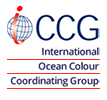The Task Force on Remote Sensing of Marine Litter has as an overarching goal to coordinate the advancement of current and future remote sensing technologies and techniques that have potential to provide observations of plastic litter over all aquatic environments.

CORE TOPICS
- Report of RSMLD session at IOCS-2023 Meeting – November 2023
- Report of RSMLD session at ESA Living Planet Symposium – May 2022
- Report of 2nd RSMLD workshop – March 2022
- Presentation IOCCG-25 Committee Meeting – May 2021
Scientific and Programmatic Background and Rationale
Anthropogenic solid litter and debris is an environmental problem that poses socioeconomic and health risks to humankind — plastics make up to 80 % of the litter in the aquatic environment! Urgent action is needed to better understand sources, pathways, geo-location and temporal distribution of plastic litter to inform effective mitigation strategies. Remote sensing is anticipated to improve the information gaps about plastic litter, and interdisciplinary prospects of remote sensing technologies in monitoring plastic litter are foreseen (Maximenko et al., 2019; Garaba et al., 2018; Martínez-Vicente et al., 2019; Biermann et al., 2020).
The IOCCG Task Force on Remote Sensing of Marine Litter aims to coordinate the advancement of current and future remote sensing technologies and techniques that have potential to provide observations of plastic litter over all aquatic environments, in the frame of a wider International Marine Debris Observation System (Maximenko et al., 2019).
More details on the Task Force are available here https://zenodo.org/record/4446238#.YCbB2nko-Ul as well as in the links for each of the four core topics.
Terms of Reference (Core Topics)
Considering all remote sensing technologies (with a special focus on radiometric approaches), the Task Force aims to coordinate the development of traceable and transparent approaches and requirements for detecting, identifying, quantifying, and tracking aggregated plastic litter patches (composed of all size classes). These requirements will be supported by four interlinked Core Topics, which are essential for creating a scientific roadmap for remote sensing of plastic litter in all aquatic environments. The Task Force also aims to produce living guidelines on best practices in remote sensing of plastics.
1) Technologies
- Define an internationally coordinated roadmap for remote sensing systems to support marine plastic litter detection.
- Assess the capabilities of current remote sensing technologies to detect, quantify, characterise and track marine plastic litter.
- Identify complementarity/synergy of EO with current and future platforms that could be used for marine plastic detection.
- Identify experimental/modelling approaches needed to refine requirements for future marine litter missions.
2) Algorithms and Applications
- Identify best retrieval and state-of-the-art strategies for each of the available acquisition technologies.
- Target algorithm development and identify action for critical aspects requiring novel approaches/solutions.
- Identify ancillary proxy datasets/variables that might be required for the various retrieval methods.
- Define validation procedures and standards.
- Consolidate representative “use cases” for assessment of the algorithms and support to the design of simulators/modelling exercises.
3) Datasets
- Establish protocols for high quality data collection, handling, processing and storage.
- Support and promote the gathering of relevant high quality in situ plastics data.
- Conduct quality control and quality assurance of essential metadata based.
- Support and maintain a platform for collaboration, source for datasets-of-opportunity, forum for community.
- Promote open-access to long-term archived high quality and easy to merge datasets as well as open-source processing software tools.
4) Interdisciplinary Aspects
- Evaluate the range of alternative sensors and platforms for plastic detection and monitoring.
- Research alternative approaches to traditional remote sensing techniques and data processing.
- Support and further develop the new interdisciplinary plastics science.
- Promote a network of information supporting plastics and society.
- Support the generation and dissemination of remote sensing information contributing to prevention and mitigation plastic policies.


 The sixth International Ocean Colour Science (IOCS) meeting will take place in Darmstadt, Germany from 1 – 4 December 2025, hosted by EUMETSAT and ESA with support from other agencies.
The sixth International Ocean Colour Science (IOCS) meeting will take place in Darmstadt, Germany from 1 – 4 December 2025, hosted by EUMETSAT and ESA with support from other agencies.